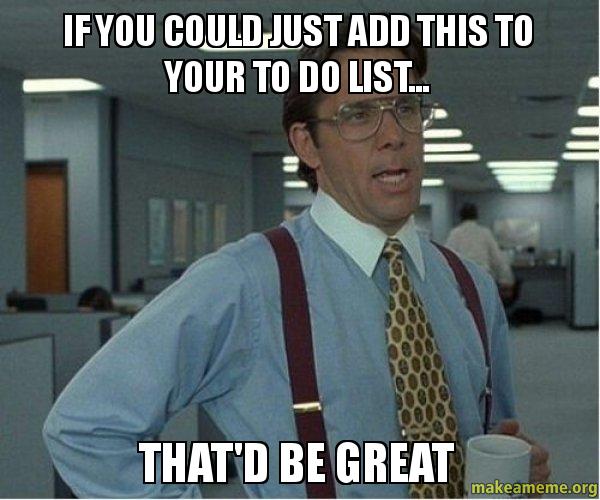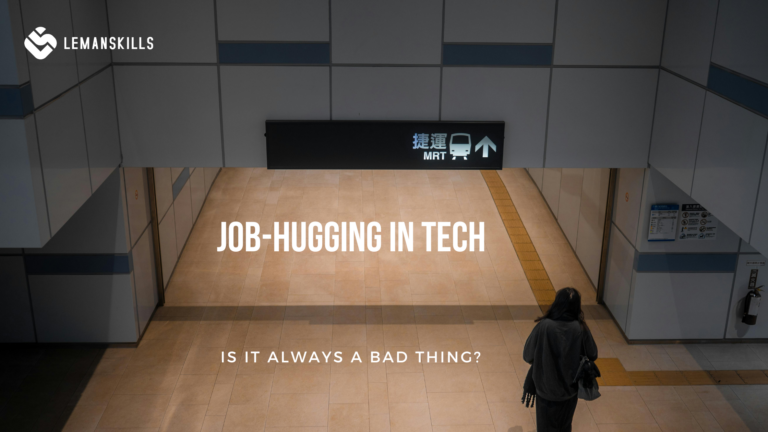Fight. Flight. Freeze. Those 3 things our brain does every time when we face a difficult situation, a change or other case that seems threatening to ourselves. And career choices are for many of us something we don’t like doing, they are stressful, difficult. Even when the change is for the best, we feel uncomfortable, maybe in our head that means that we fail, we disappoint other people or ourselves.
When I think about all the reasons that people don’t make decision about their career, I can see that we are scared of a change. Because we don’t know what is there waiting for us in a new place. Maybe it’s worse than right now? Maybe where we are now is not perfect, but it’s not SO bad. We know how to operate within the whole system on a daily basis. Maybe the tasks aren’t the most interesting, but at least we know what to do.
Sometimes we don’t know what we want to do in our work lives further. We did some studies, started a job, then have another and the time flew. We got pretty comfortable – maybe not super excited all the time, but it’s fine.
It’s fine.
Not so bad.
Those two short sentences can literally kill us from the inside. When I deliver career coaching processes in the organizations, 90% of the cases we talk about start with: “Alex, I feel stuck in my career. I don’t know what to do further, I don’t have any idea, I’m not sure what kind of next steps I can cover to get unstuck”.
So let’s answer this, I hope that’ll be helpful for all of you who read. What can you do when you feel stuck in your career?
Thing no. 1: Make a list of everything you can and want do in your career
When we do what we like, we are passionate about and what is connected to our values, it’s always easier, more fun and with a better result at the end of the day. Of course nothing is perfect: there are always things that need to be done and don’t thrill us. The most important thing is the ratio: if it’s 80/20 (things we want to do vs things that need to be done), it’s fine. If it’s the other way around, it means that we should take a step back and reflect on what might change to reverse the situation. Because staying longer in that space will lead to the burnout, frustration, mental heath issues, even issues in your private life. Everything is connected, we are holistic species.
The first thing you can do when you fell stuck in your career is to make a list of things you love doing. You can do it in Excel spreadsheet, on a piece of paper or in other tool (digital or not). It doesn’t really matter – choose something that will help you to organize your thoughts and it’ll be helpful further in the next steps.
Make a list of tasks, projects, micro elements that make you feel good at work. You can support yourself with the questions:
- What do I like doing?
- When (in what situations) I feel that I lose track of the time?
- When (in what situations) I feel that I belong?
- When (in what situations) I feel that I deliver value to others?
- What am I passionate about?
- What things at work feel natural to me?
- What are my main talents (you can add here your TOP 5 from Gallup Strengths Finder questionnaire)?
- In what area am I an expert, I feel the strongest, I can answer any questions?
- When I feel that I use my whole potential?
- What kind of skills/competencies (social and technical/hard skills) I have at the moment?
We (in general, as people) have a strong tendency to focus on our weaknesses, on what we do wrong or where we are not perfect or good enough. That’s why I encourage you to start with this list, to see how many things you are actually really good at. It’ll improve the process of decision-making regarding the next steps in your career.

Thing no. 2: Make a list of everything you can’t and don’t want to do
Not-to-do list is as important as the to-do list.
Make a list of things you hate doing. You are sick to your stomach just by having the thought in your head about it. The things that, when you think about them, make you want to call in sick. Everything you just have doing or you are bored to death when you even thing about it (not to mention doing it). Every single thing that leads you to the bored or burnout zone.
You can support yourself in this part by using those questions:
- What do I hate doing?
- What I don’t know how to do and don’t want to learn (and why)?
- When I feel I want to call in sick?
- What is the worst thing I have in my head before every Monday?
- What makes me count days until Friday/next vacation?
- When I feel stupid/not good enough/not educated enough/worse than others?
- Who makes me feel like that?
- What kind of situations drain me out of energy?
- Spending time with whom makes me feel like dying from the inside?
- What kind of tasks do I believe that are a waste of time?
- Which elements of my job don’t bring any value to anyone?
Think about your current or previous work-related experiences. If some elements are repetitive that’s fine: it’s also an information for you that there is a pattern in your choices that you can be more mindful about when choosing the next career space for yourself.
Thing no. 3: Create an action plan to make your new career happen
All of the questions you can find above are for you to use to make a structure around your thoughts. Be as specific as possible, answer honestly – remember that this list is just for you (unless you decide otherwise). Of course this list isn’t ended – you can always add your own questions or thoughts. It’s a tool for you, make it useful in your specific context and situation.
When you have it done, the next step is the action plan. What items from your list do you want to use in your next career step? Underline all of them. Include the talents you have, it’s important to do on a daily basis as frequent as possible the things that don’t require much energy from us, that are natural. What from the list of things you don’t want to do is crucial for you to avoid? Try to not underline the whole list, it might be difficult to create a perfect world. Choose those that are the biggest issue for you, make it 3-5 elements to simplify the process of elimination.
Now, there are at least 2 scenarios: either you have a position you want to cover in the nearest future in your head or not.
If yes – refresh your LinkedIn profile and your resume and send as many applications to the companies/branches that you find interesting as possible. Don’t get frustrated when you don’t have many responses. Remember that many organizations (especially global corporations) have robots in their recruitment platforms, so the human recruiter don’t even see the first set of CVs that candidates send. That’s why it’s so important to go for quantity – if you only send 2-3 applications, it might not be enough to go through the key words engine on the recruitment platform.
If not – find someone who will guide you further to specify the positions that will cover your to-do and not-to-do list. It might be your manager, HR person from your organization, career coach, myself. It’s important to make it as easy as possible to identify what is out there for you, your talents and potential. To avoid the frustration of a long process of mapping and elimination what you want and don’t want to do further. It can take all the excitement and fun connected to the process of looking and change, and that’s not what we want at all.
If you see that you need to learn something, fill out any skill gaps, include it in the action plan with the specific dates. Make a contract with yourself, it’ll cut the procrastination and the I-don’t-have-time excuse. Use OKRs if it makes it easier to stay on track with your decisions. It’s super important to keep moving. Once you have a structure, support and you know what is the next step on your path, it’ll be easier, less scary and painful for your mind and body to keep going.
The bottom line
When you feel stuck, baby steps made in a consistent way are the best solution to move outside of this feeling. Structure, analysis and planning are the best way to put yourself in a better place, to have a purpose again. When you are frustrated in your current job, you need to find your momentum again.
Ask yourself what you want and don’t want to do. Find people who can support you – directly or indirectly. They can get you inspired, even if you only listen to them talking (through podcasts, TED talks or YouTube videos) or you read about them. Find a person (or more people) that already done what you want to do. Find out how they did it and get yourself inspired. It doesn’t mean that you need to copy and paste into your life what they’ve implemented. It is more about a discovery what they did and a decision what will be useful in your life, your situation or resources you have.
It’s your life. And you spend a lot of time at work. Let’s not waste it in a place that doesn’t deserve it.




